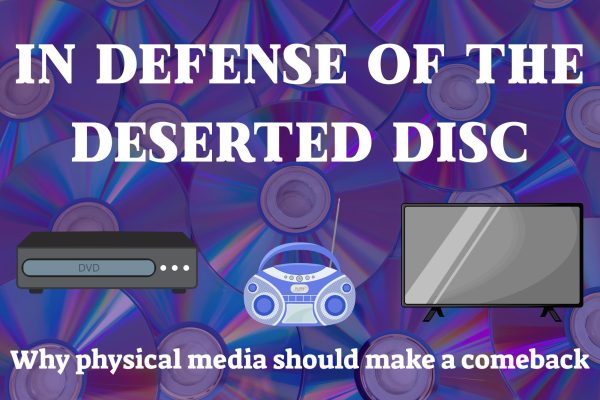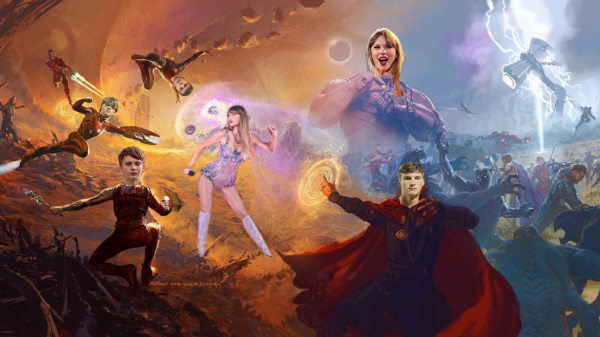Word choice matters: Quit overdramatizing your feelings

“I feel sad, I literally have depression.”
“You’re so bipolar.”
“My anxiety is so bad right now!”
“My life is falling apart.”
Generally, these terms have been used as an everyday adjective to describe one’s feelings; usually, for minor descriptions. These words have become normalized for peoples everyday vocabulary.
Realistically, these terms should be used only for the purpose of describing their actual, sensitive meaning and not just thrown all over the place. All around, their meaning has been lost.
People who sincerely suffer from these mental illnesses have it rough and genuinely go through it – no sugarcoating. To them, it hurts when people slur their mental health disorders, like they’re just minor inconveniences.
Others who aren’t really suffering from these terms only use them to add emphasis to their feelings. In doing so, this downgrades true sufferers and their feelings, making their circumstance seem as if it’s not as important as it really is. Potentially, making their situation and mental state worse.
The other day, this girl who sits beside me in class was explaining how her anxiety is so bad that she couldn’t do her presentation in class today. Let’s call this girl Student 1. So, Student 1 continued to say she was so ‘stressed out’ and because of that she ‘couldn’t focus.’
Then, she just got on her phone and started giggling at something with the girl beside her, saying how she just didn’t finish her presentation. To me, that’s not her having bad anxiety, but overdramatizing herself so she didn’t have to do anything.
In the back of the class, there’s a quiet girl who I have never heard speak to anyone. We’ll call her Student 2. That same day, Student 2 seemed to be on edge about something. Her eyes were kind of darting all over the classroom and she kept fidgeting and breathing heavily. So, I cautiously sat down beside her to ask her if everything was alright.
She proceeded to tell me under her breath that she had really bad social anxiety and the thought of her giving a presentation made her want to pass out. Student 2 began to accumulate sweat beads on her forehead and red cheeks. This girl has sincere anxiety and I couldn’t help but to get agitated with Student 1, who overreacted about her ‘anxiety.’
Student 1 obviously used this term inaccurately. She had no place to over exaggerate her situation in the way that she did. Honestly, it’s disrespectful to Student 2 and everyone else with anxiety.
The definition of anxiety: Intense, excessive, and persistent worry and fear about everyday situations. Fast heart rate, rapid breathing, sweating, and feeling tired may occur. Anxiety is an emotion characterized by feelings of tension, worried thoughts and physical changes like increased blood pressure. Student 1 sure seemed anxious on her phone.
Sadly, most people do it, including me. It’s a disappointing, universal habit. But, there are times where I have experienced real panic attacks where I couldn’t see, my body felt numb, and my ears started ringing. It’s the worst feeling I have ever felt in my entire life. For someone to downgrade anxiety, it infuriates me.
No, I don’t have it like some people do. Although, I experience attacks in some stressful situations – shots at the doctor, cheer competitions, or any personal, stressful situation. However, in the few times I have experienced panic attacks, it scared me. Just enough to make me not overdramatize my anxiety.
Nowadays, mental health rates are so high. The world is a very judgmental, highly expectant place. There are unrealistic social norms that cause toxic environments and lead people to depression, body dysmorphia, or anxiety. All we do is compare ourselves to each other. With this, it is even more common for people to misuse terms, in turn making people who actually experience mental health problems even more sensitive to the fact.
Realistically, no one can change how the world goes around. You can’t make everyone change their perspectives and sympathy for others. It just doesn’t work that way. But, people do need more awareness of other people and their feelings. Then, with more caution, further damaged mental health can be prevented.
You never know who’s suffering and you never know who’s listening. Maybe, try being real with your feelings and explaining them for how they are, not what you’re trying to make them out to be.

Macy would go for Don Señor because they have better pollo bandidos, but Puerta Grande has good Alfredo. She would live in “Shark Boy and Lava Girl” because she wants to be in candy land. Her life...











